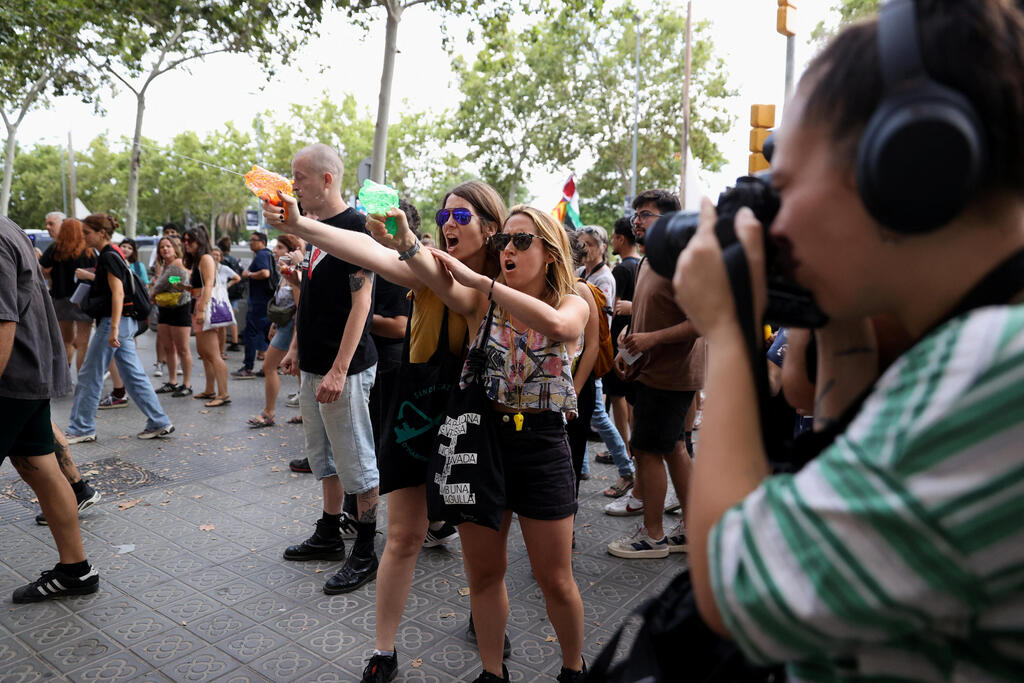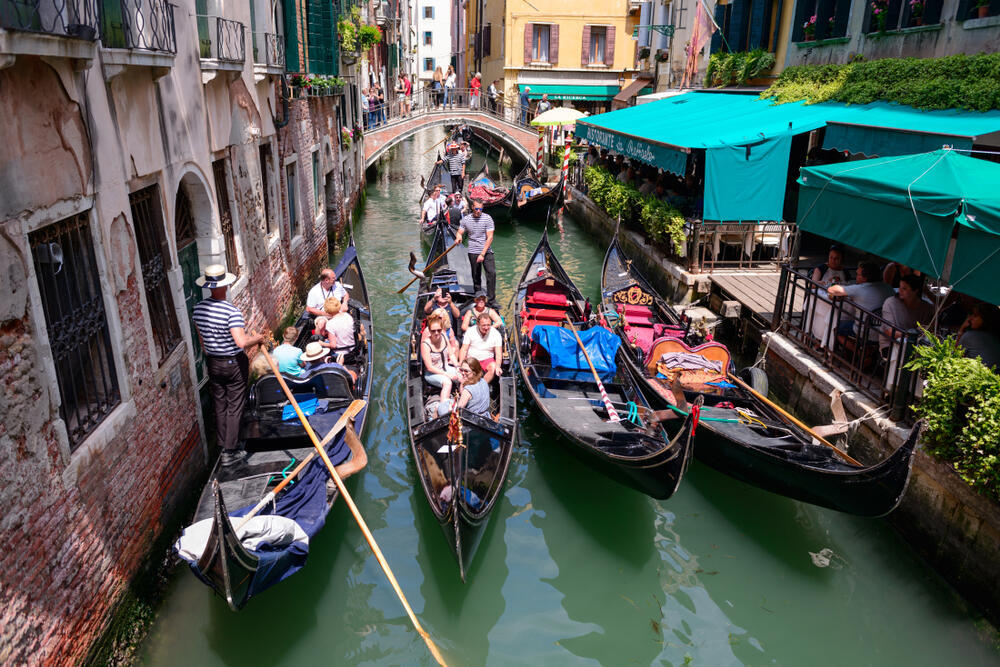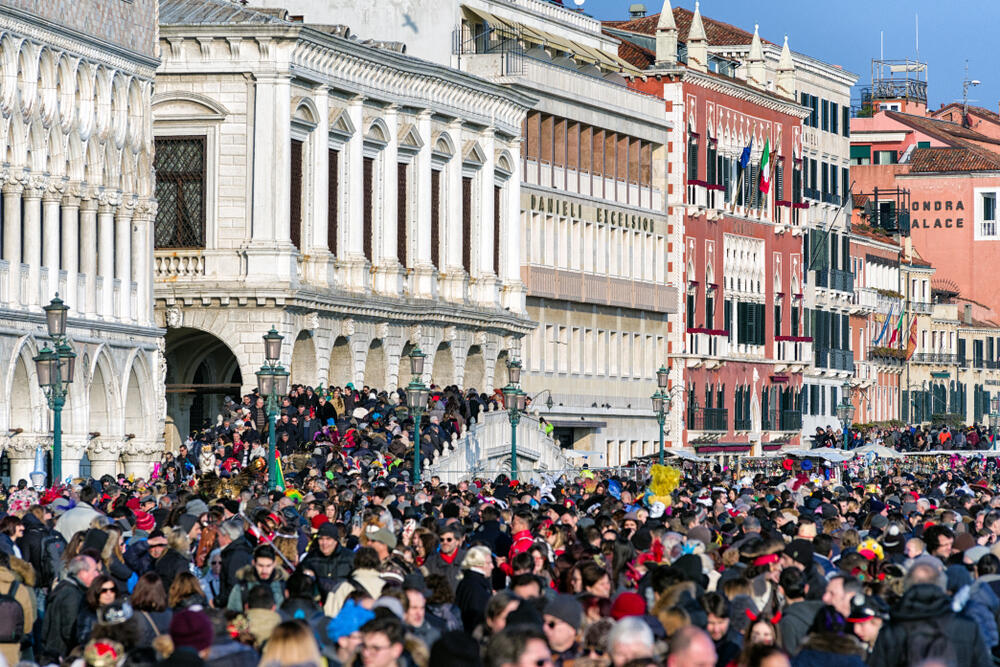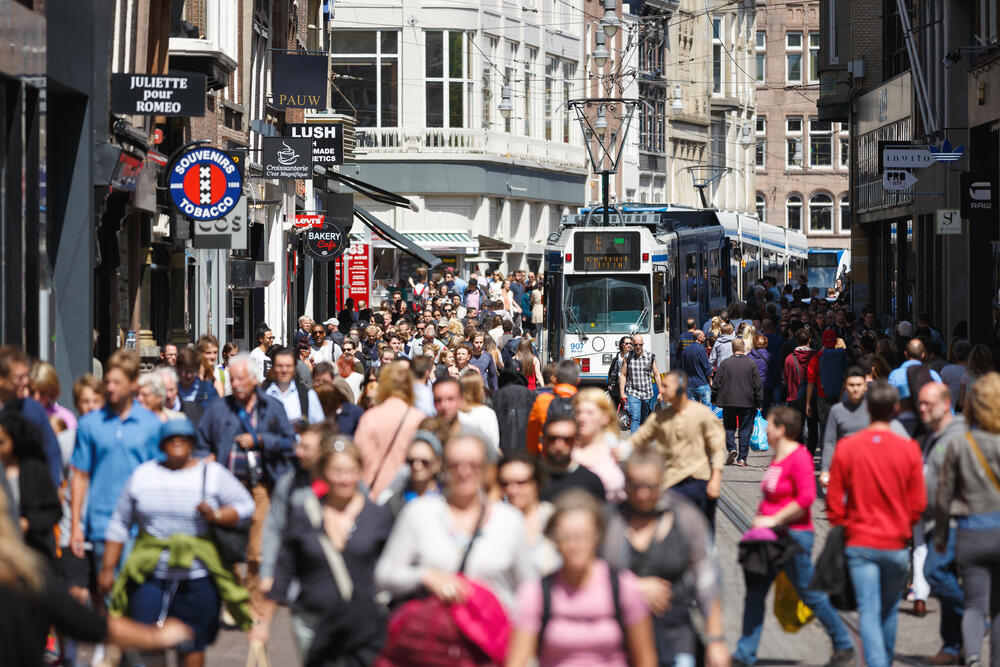Getting your Trinity Audio player ready...
Residents of popular tourist cities are waging a battle to reclaim their quality of life. What began as efforts to implement local regulations—such as bans on wheeled suitcases in Dubrovnik, entry fees in Venice or the removal of digital bus schedules on popular routes in Barcelona—has now escalated into street protests against overtourism.
Despite the 670 billion euros that tourism generates annually, locals argue that the influx of visitors during peak months disrupts their lives and overwhelms their cities.
Historically, it was primarily American tourists, armed with strong dollars, who flocked to European destinations in the summer. But the rise of the middle class in countries like India, China, Brazil and the Gulf states has turned these popular vacation spots into places where locals feel increasingly alienated.
"In the beginning, it was novel and beneficial to the local economy, with tourists who shared our culture," a resident of a Swiss alpine town told Der Spiegel. "But now, our town is a gridlock of buses, selfie sticks are everywhere, drones fill the sky and helicopter tours are being organized to bypass the traffic. It’s not the town it used to be, and it certainly doesn’t feel like ours anymore. No amount of income can make up for that."
5 View gallery
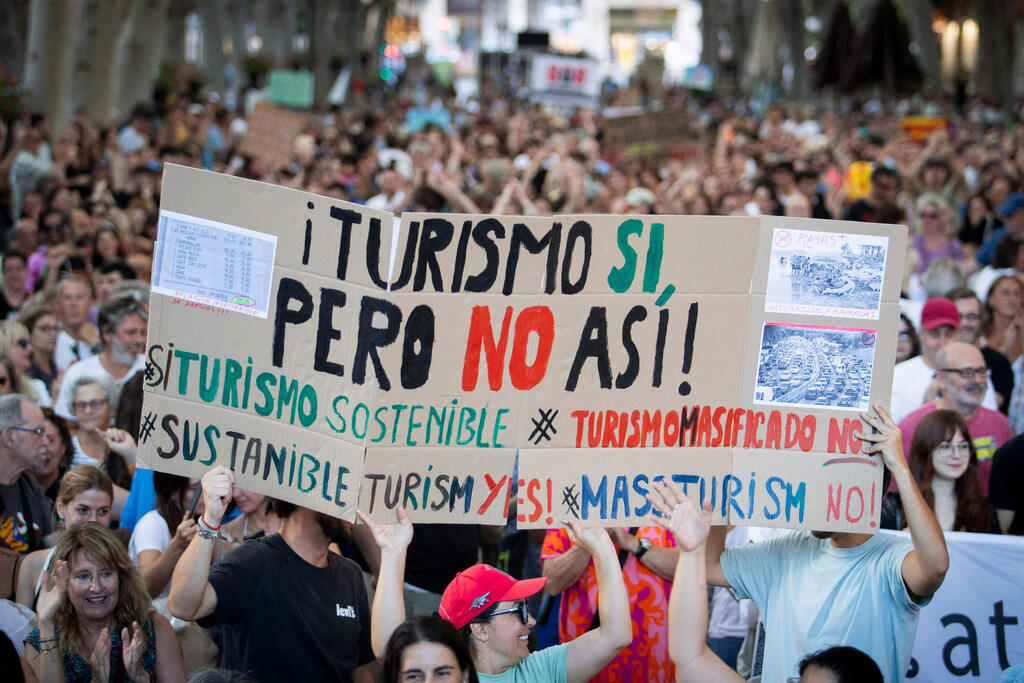

'Yes to tourism, but not like this': Anti-tourist rally in Mallorca
(Photo: JAIME REINA / AFP)
Last year, 709 million tourists visited Europe—an increase of 22% compared to a decade ago. For example, the Spanish island of Mallorca expects 20 million tourists this year, three million more than last year, overwhelming its 900,000 residents. Other cities, such as Lisbon, Athens and several Spanish cities and islands, have joined the fight.
Amsterdam has launched a major project to reduce tourism by 2035, including limiting hotel stays, banning the construction of new hotels, relocating the red-light district, restricting marijuana sales and banning cruise ships—all aimed at "returning Amsterdam to its residents."
Protests under the slogan "Fewer Tourists," which began in Mallorca and the Canary Islands, are spreading across Europe. Many residents complain that the commercialization of tourism has stripped their cities of the authenticity that initially attracted visitors. They are organizing to demand a fairer distribution of revenue, higher taxes on the tourism industry and restrictions on property purchases by foreigners.
"But it's a losing battle," Jorge, a Mallorca resident, told CNN. "The new economy has made flights cheaper than train rides, accommodations more affordable and accessible and social media has turned this into a pandemic: everyone sees a restaurant, museum or beach online, and everyone wants to go there. You can’t fight it."


